The term carrier oil tells us as much how an oil is used, as what type of oil it is. All carrier oils, or the oils we use as carriers, belong to the class of lipid oils. These are the rich “oily” oils made up of fatty acids. Your olive oil, avocado oil and even the tub of coconut oil on your kitchen counter all fall into the category of lipid oil.
Carrier oils picked up this common name because these are the oils we use to carry other ingredients and compounds.
For example, when you are creating an essential oil blend, you need a carrier oil to carry your essential oils. The carrier oil holds the essential oils, and helps to deliver them safely as skin care formulas and in medicinal blends. Or, if you are making a facial cream, the carrier oils carry the other compounds in your formula.
Over time the term carrier oil became the common name for all lipid oils, but this term is misleading. But first, let’s define the oils we call carriers.
What Are Carrier Oils?
Carrier oils all belong to a class of lipid oils. These oils are made up of 95% or more fatty acids. The other small amount is called the healing fraction or the unsaponifiables portion of the oil. I’ll expand on that in just a moment.
Fatty acids, the compounds that make up carrier oils are nourishing and gentle enough to use directly on your skin. Think of your olive oil, or your coconut oil.
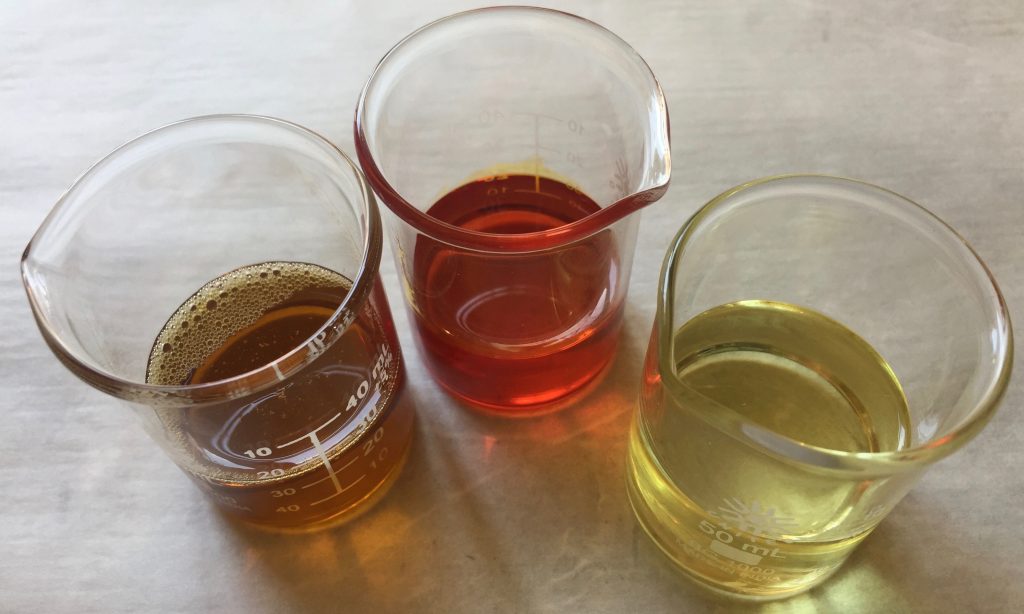
Carrier Oils vs Essential Oils
Essential oils are unrelated to carrier oils. These volatile compounds are not true oils but rather very concentrated distillates from plant petals, bark, leaves, fruit peels and in some cases even aromatic seeds.
A Simple Test
You can do a simple test, and one I love to share, on a piece of printer paper. Spill a little olive oil, almond oil or another carrier oil on one side and drop a few drops of pure essential oil on the other.
Within 24 hours, the carrier oil will still be there, leaving an oily stain permanently on the paper. The essential oil, if it is not diluted in a carrier oil, will have disappeared without a trace.
This experiment demonstrates that essential oils are volatile, they will disburse into the air and disappear, while carrier oils are fixed. They will not disperse into the air, a distressing fact when you accidentally get a drop of olive oil on your favorite top.
Examples of Carrier Oils
- Argan oil
- Avocado oil
- Grape seed oil
- Sesame oil
- Sweet almond oil
- Camellia seed oil
- Plum kernel oil
- Jojoba oil (technically a wax)
- Meadowfoam seed oil
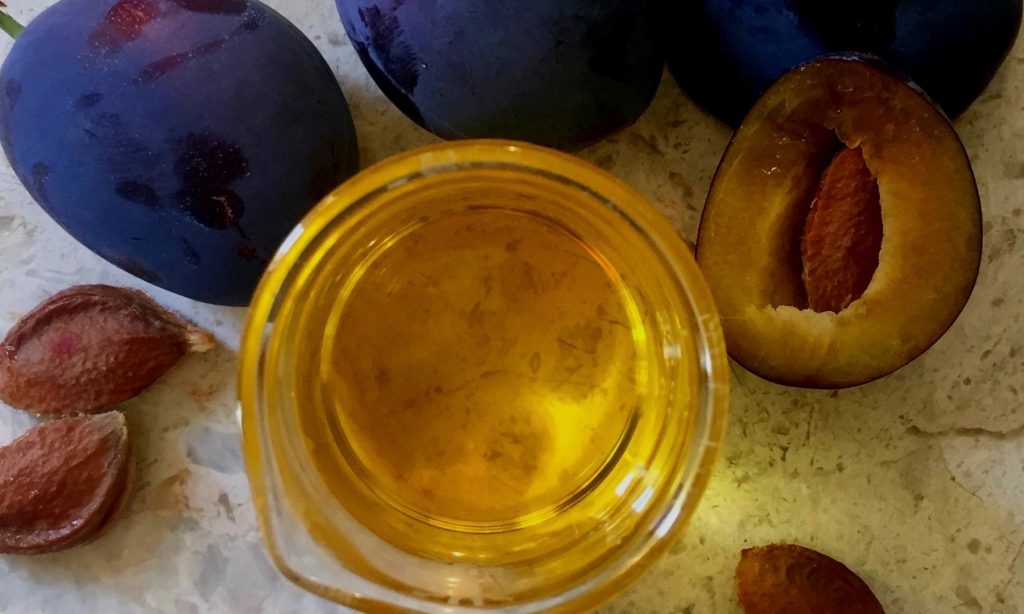
High Value Carrier Oils
But there are a whole range of other oils that also fall under the common name carrier oil. These oils are lipid oils, made up predominantly of fatty acids, so you would not be wrong to call them carrier oils. But in truth, they do not carry a formula well.
These oils are the oils that are high in pigments like carotenes, anti-oxidants, tannins. They have exceptional skin healing benefits, and are safe to use directly on the skin, but because they are typically highly pigmented, strongly scented or thick, they do not carry a formula well.
These are the oils I use in small amounts in facial serums and skin care products to add the antioxidants, minerals and other skin nourishing compounds, without making a bright red facial oil. These oils also tend to be a lot more expensive so it makes better economic sense to use them in small amounts.
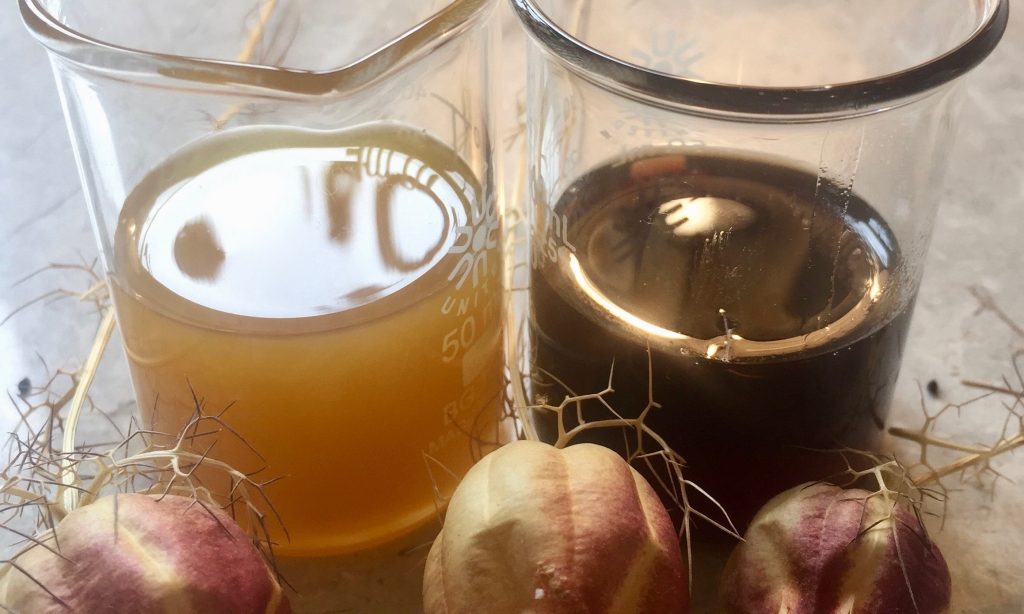
Here’s a few examples:
- Tamanu oil – thick and green, smells sweet
- Sea buckthorn oil – usually red or orange, rich with anti-oxidants and carotenes
- Unrefined pomegranate seed oil and rose hip seed oil
- Black seed oil – usually dark colored with a strong, spicy aroma
What’s in a Name?
There is some confusion as to what to call these oils. As I mentioned, the term carrier oil is one we use by convenience. Other names you might find these oils listed under are fixed oils, base oil, vegetable oil, seed oil, and lipid oil.
Base oil is a term used often in formulating. The oils are used to create a base for a cream, cleanser or serum to which other ingredients are added in.
Fixed oil is a term that describes the nature of the oil. The fatty acids that make up most of the oil are fixed, compared to the volatile compounds in essential oils.
Vegetable oil: technically most of the oils we use as carrier oils could be called vegetable oil but it is not a term used often in skin care, rather more for food preparation. The common vegetable oils for cooking are made from corn, or rapeseed, which is canola, sunflower and safflower and peanut.
Seed oil makes sense as a name because all these lipid (carrier) oils come from seeds, nuts and kernels. From the coconut to the sesame, all these are some form of plant seed that enables the plant to reproduce itself.
And lipid oil, my favorite and I find the most accurate, because these oils are a major part of the chemical class of molecules called lipids or fats.
How Long do Carrier Oils Last?
Most carrier oils will last anywhere from six months to two years, though much of their life is determined by how they are handled and stored. Exposure to air, heat and light will, over time, cause carrier oils to go rancid.
Rancidity happens when oxygen attaches to the unsaturated carbon fatty acid molecules, causing oxygenation and the oils become rancid.
Oils are prone to oxygenation at different rates depending on their fatty acid structure. For example, oils high in saturated fatty acids, like shea butter, coconut oil, cocoa butter and mango butter hold up for multiple years in proper storage whereas oils high in polyunsaturated fatty acids, like flax seed oil, grape seed oil and raspberry seed oil will go off far more rapidly, approximately six months to one year.
The exact shelf life of oils varies considerably, but there are steps you can take to prolong the useful life of your carrier oils. Store all oils in a cool dark space and always keep lids on tightly. Dark bottles also help to keep your oils fresh longer as they minimize the action of light on the oils.
Very delicate oils, like flax seed oil, hemp and borage should be kept in the fridge while others should be fine in a cool dark space.
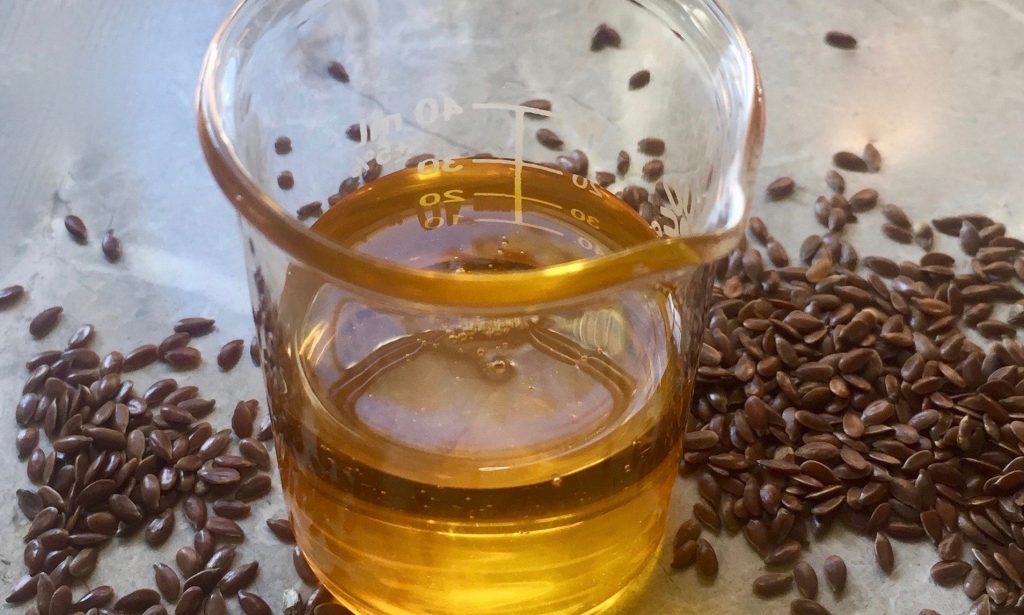
Why Does the Color Vary So Much?
Color, taste, scent, all these variations in carrier oils come from a very small but potent part of the oils. Carrier oils are made up of 95% or more fatty acids. Fatty acids give oil its structure, character and most of its skin nourishing benefits, but there is that small percentage that is not fatty acids. This is called the healing fraction, or the unsaponifiable part of an an oil. This part of a carrier oil is where you find the antioxidants, carotenoids, tannins, minerals and other non-fatty acid compounds. These compounds are found in the seed, nuts and kernels we press the oils from and are what give different carrier oils their unique characteristics of scent, color and taste. Unrefined avocado oil is quite green, while unrefined sea buckthorn oil is red in color.
The unsaponifiables, or the healing fraction of an oil is also the part that often gets removed from an oil during the refining process.
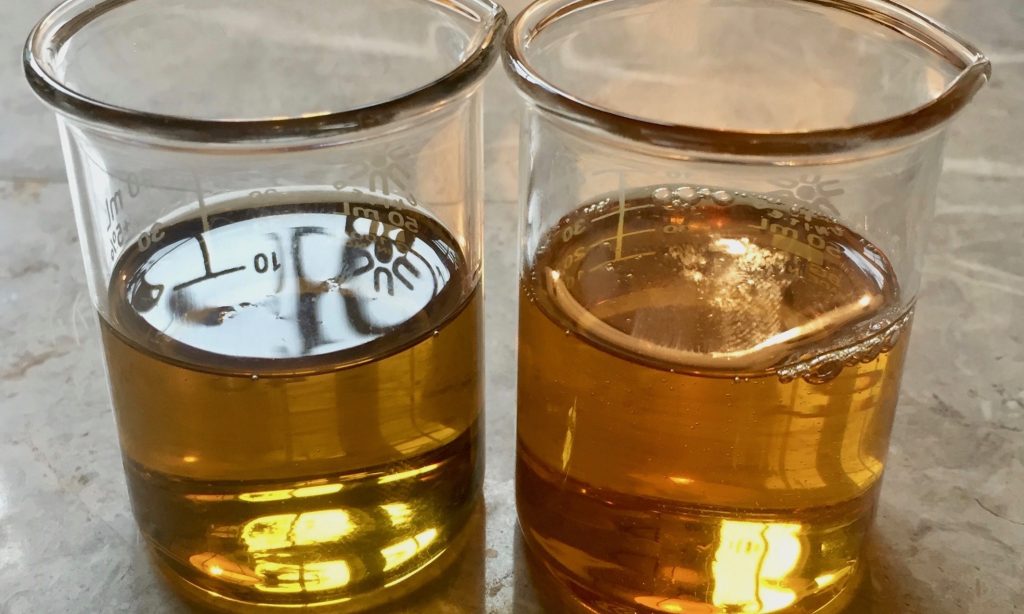
Should I buy Refined or Unrefined?
This is one of those questions where there is no best answer I can give you. It is going to depend on your intended use. Most, if not all carrier oils you buy undergo some level of refinement if only to remove seed particles and dirt or solid bits of olive or fruit for example. These non oily parts are filtered or refined out of the oil.
For most oils I look for a lightly refined oil, one that still has a lot of the scent and pigments present but are refined enough to make a good product.
But there are exceptions, for example argan oil. Argan oil, if it is not deodorized, can smell unpleasant and strong. But argan oil itself is such an important skin care oil we don’t want to leave it out of our recipes and routines and so, it is one oil that is often deodorized and is an example of good refining.
Another example of when you might want a more refined carrier oil is if you are creating an essential oil blend and you want the main focus to be on the scent combination of your essential oils. You’d want to pick a neutral, usually refined carrier oil that can carry your formula without overpowering the essential oils.
A common refined carrier oil is a partial oil, fractionated coconut oil or FCO. Fractionated coconut oil is scentless, colorless and tasteless. It has long shelf life and is a completely saturated, and liquid form of oil.
Personally, fractionated coconut oil not an oil that I use as I feel it is the junk food of of the lipid group, highly refined, characterless but it is convenient. Here’s a list of carrier oils that are neutral without being highly refined, ideal for when you want the main focus of your formula to be on other compounds and you need an oil that will hold your formula without a strong presence of its own.
- Camellia seed oil
- Jojoba oil
- Meadowfoam seed oil
- Almond
…and more
Suggestions for Skincare
While the lipid/carrier oils are such an important part of skin care formulas, from creams to oil serums and body butters, they also make for exceptional skincare on their own as a single oil or an oil combination alone or under your moisturizer. Increasingly skincare companies are adding facial oils and oils serums to their product lines. Here you might find the oils under the name beauty oil or botanical oil blend are two ways I’ve seen them described. What is a beauty oil? It can be pure raspberry seed oil, rose hip seed oil or another rich nourishing carrier type oil, or it can be a blend of a variety of oils.
I am always trying new oils, experimenting with them on my skin. I might use an argan oil, for it’s protective properties one day and raspberry seed oil the next for its antioxidant properties. When I’m traveling I take what I need for the climate I am going to. In the spring I was at a conference in Phoenix, Arizona, and knowing it would be very dry I brought argan oil and shea butter. But at home in the Pacific Northwest, I can use something lighter most days, like pure raspberry seed oil or my daughter’s favorite prickly pear seed oil.
What are the best carrier oils for skincare? It depends on your skin, your climate, your age and lifestyle, but here are some guidelines to get you started.
Oils for dry skin – argan oil, Kalahari melon oil, baobab oil
Oils for oily skin – camellia, hazelnut, grapeseed oils
Oils for mature skin – avocado, macadamia nut oil, argan oil
Oils for normal skin – almond, apricot kernel, plum kernel
Carrier oils are an important part of using essential oils safely. Carrier oils carry the blend, and while they may not always be the star of the formula or combination, they need not be simply an afterthought either. I’ve put together this quick guide to carrier oils for you so that you can make better choices when selecting carrier oils for a range of different therapeutic essential oil blends.

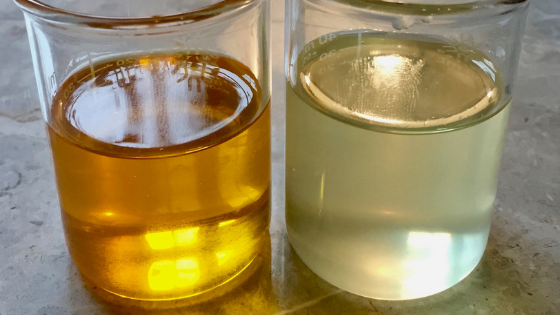
Loving learning about these beautiful oils. Thanks so much Susan.
Thanks so much for this info. Its explains alot and gives me more thought about which oils to use for different products.
Your book and spotlight info articles are wonderful…..thank you.
So glad I took this course! Much more in depth than what I expected and I learned so much from you.
Thank you
Hi Susan,
This is GREAT! and so helpful.
My question would be which of the lipids would “carry” an additive (you know the one I am referring to I bet:) so that it can soak into the skin? I am talking body here. The Facial part seems to be fairly covered in this write up. 🙂
Ones I am looking closely at are: Andiroba, Baobab, Marula, Hibiscus, Hemp, Avocado, Argan, Mufuru butter, Kpangan butter, Sal Butter Murumuru or Ucuubu butter instead of beeswax for firmness if in a salve or cream…. and perhaps Cupuacu. I would add other oils to a formula but I am interested in oils that will allow something with a larger molecule to “soak” in to the skin. By playing with Mafuru butter, I have come to realize that the Palmetic acid may play a very big role in this… Yes, no? Thanks! 🙂
I would like to know this too